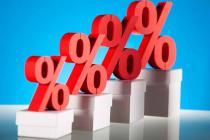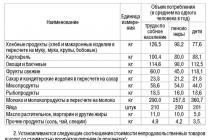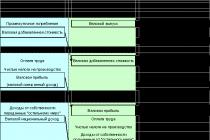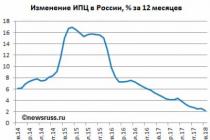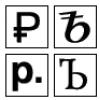(born September 15, 1937)
Nobel Prize in Economics 1995
American economist Robert Emerton Lucas (Lucas), Jr. was born in the town of Yakima, Washington, the son of a small restaurant owner. After graduating in 1955. high school in Seattle, where the family L. moved during the 2nd World War, he studied mathematics at the University of Chicago, then became interested in history, problems of organization, the methodology of knowledge. Since 1959 he continued his studies at the University of California at Berkeley, specializing in history. After listening to the course economic history and a theoretical course in economics, felt an interest in economic theory and returned to the University of Chicago. In 1959, he received a bachelor's degree in history from the University of Chicago, and in 1964 he defended his doctoral dissertation there on the topic "Replacement between labor and capital in US industry in 1929-1958." ("Substitution Between Labor and Capital in U.S. Manufacturing: 1929-1958"). He taught at the University of Chicago (1962/1963); assistant professor of economics (1963-1967), assistant professor of economics (1967-1970), professor of economics at Carnegie Institute of Technology (1970-1974) (now Carnegie Mellon University). Professor (1975-1980), since 1980 - Distinguished Professor of Economics at the University of Chicago. In 1975-1983 Deputy Dean, in 1986-1988 Dean of the Economics Department at the University of Chicago. Deputy Editor-in-Chief of the Journal of Economic Theory (1972-1978) and the Journal of Monetary Economics (since 1977). In 1978-1981 and again since 1988 - editor-in-chief of the Journal of political economy” (“Journal of Political Economy”).
J.I. known for his work in macroeconomics. He is the recognized head of the so-called "new school", hallmark which is the use of the rational expectations hypothesis. L. used this hypothesis, according to which all subjects economic activity- households, firms, organizations - effectively use the information available to them, in macroeconomic analysis for a more in-depth study of the relationship between macroeconomic indicators(Phillips curve) and economic policy. By introducing into the analysis the distinction between expected and unexpected changes in growth money supply, he found that the expected growth in the money supply has the effect of an inflationary burden and the introduction of an inflationary premium on the nominal rate of interest, without giving rise to any incentives for the growth of employment and production. On the contrary, an unexpected increase in the money supply can stimulate production, while its unexpected contraction, on the contrary, produces a depression. This distinction was made in the 1970s. application in many econometric models that use the hypothesis of rational expectations in the calculation of short-term transactions.
The main merit of L. was formulated by him the theory of imperfect information, the essence of which is as follows. Comparing the markets for individual goods with islands scattered in the sea, L. believes that the commodity producer does not have complete information about the situation in other markets, just as an islander has no idea about what is happening on other islands. Therefore, the commodity producer is not able to correctly evaluate the information. For example, he cannot know exactly what caused the rise in the price of a commodity - an increase in real demand or an increase in the amount of money in circulation. According to L., an individual or a firm acting in accordance with the concept of rational expectations regards the increase in prices in the local market partly as a result of a general increase in prices, and partly as a result of a change in the relative price of a commodity. It followed from this that even if the rise in the price of a commodity is due only to a general rise in prices, the rationally thinking commodity producer still assumes that the relative price of his commodity has increased by a certain amount. Based on this, he expands production, other manufacturers join him, as a result, an economic recovery is planned.
Work L. led to a significant revision of the interpretation of the so-called Phillips curve, reflecting the relationship between inflation and employment, which until the early 70's. considered one of the most stable economic indicators. Based on the invariance of the -Phillips curve, the government and central banks many countries pursued an expansionary policy in order to constantly increase employment, the result of which was an increase in inflation rates.
J.I. used the concept of rational expectations to show that employment growth need not be accompanied by inflation. Moreover, in his opinion, any attempt, based on the data of the Phillips curve, to increase employment by resorting to ever higher inflation rates is doomed to failure. J.I. established that the Phillips curve does not remain stably unchanged, it changes when the rational expectations of agents economic relations adjust to higher inflation rates. This conclusion was fully confirmed in the practical economic policy of many European states in the 60s, when the central banks and governments of these countries resorted to inflationary growth in order to stimulate economic growth and employment. As a result of this policy, in support of L.'s hypothesis, the Phillips curve changed, and a continuous increase in employment could not be achieved in any country.
Research results JI. were of fundamental importance for the development of macroeconomic theory and economic policy. From them, in particular, it followed, firstly, that society not only does not receive a permanent gain from high inflation rates, but, on the contrary, high rates inflation have the most detrimental effects. This conclusion is now generally recognized and underlies the monetary policy of the leading countries of the world, seeking to maintain consistently low inflation rates. Secondly, the work of JI. showed that high level unemployment and, consequently, low employment can be much more successfully eliminated using methods other than monetary and fiscal policy for example, through structural changes in the labor market.
If the first works of JI. showed the danger of uncritical use of statistical dependencies for conclusions regarding economic policy, then, further developing his criticism, he showed that not only the Phillips curve, but also other important proportions and relationships used in macroeconomic analysis and previously considered stable (for example, the dependence consumption and investment from wages, rates of interest and taxes) on closer examination are also subject to change. It followed from this that the conclusions of economic policy based on these regularities are not reliable. J.I. proposed a theoretical justification and statistical methods of analysis, which made it possible to avoid unreliable estimates of the consequences of a change in economic policy. The methods he developed have become a universally recognized tool for economic policy analysis. J.I. also made contributions to other branches of macroeconomic theory, including monetary theory, financial economics, and economic growth theory.
The 1995 Nobel Prize was awarded to JI. for "development and application of the rational expectations hypothesis, and for contributions to the macro economic analysis and deepening understanding of economic policy”.
J.I. - Member of the Econometric Society (since 1976, 1982-1984 - Member of the Board, 1995 - Vice President), American Academy of Sciences and Arts (1991 - 1995 - Member of the Board), American National Academy of Sciences, American Economic Association (since 1987 - Vice-President the president). Honorary member of the University of Paris, Athens University of Economics and Business.
Cit.: Capital-Labor Substitition in U.S. Manufacturing // Harbeiger A.C., Bailey M.J. (ed.): The Taxation of Income from Capital. Washington, 1969; Real Wages, Employment and Inflation (with L.A. Rapping) // The New Microeconomics in Employment and Inflation Theory. New York, 1970; Rational Expectations and Econometric Practice (ed. with T. J. Sargent). Minneapolis, 1981; Studies in Business-Cycle Theory. Cambridge: MIT Press, 1981; Models of Business Cycles, Yrjo Jahnson Lectures. Oxford, England, 1985; Recursive Methods in Economic Dynamics. Cambridge: Harvard Univ. Press, 1989.
More on Robert Lucas (Lucas):
- Economic growth and its indicators\r\n The concept\r\n of economic growth
- Copyright - Advocacy - Administrative law - Administrative process - Antimonopoly and competition law - Arbitration (economic) process - Audit - Banking system - Banking law - Business - Accounting - Property law - State law and management - Civil law and procedure - Monetary circulation, finance and credit - Money - Diplomatic and consular law - Contract law - Housing law - Land law - Suffrage law - Investment law - Information law - Enforcement proceedings - History of state and law - History of political and legal doctrines -
Robert Emerson Lucas Jr. (Robert Emerson Lucas, Jr.) is one of the most respected economists in the world, who won the Nobel Prize for making fundamental changes in the foundations of microeconomic analysis.
Robert Lucas was born on September 15, 1937 in Yakima, Washington, USA. In 1955, immediately after graduating from high school, the future laureate entered the history department of the University of Chicago. He graduated in 1959 with a bachelor's degree in history.
A little later, he returns to the university and enters the Faculty of Economics. In 1964, Lucas completed his graduate studies, while defending his thesis for a Ph.D. in economics.
Robert Emerson was married to Rita Lucas, whom he divorced in 1988. His second wife is the famous economist Nancy Stockey, who is a co-author of some of his scientific works, as well as her husband, works as a professor at the University of Chicago.
In 2002, the scientist, already at an advanced age, entered the University of California.
Currently, R. Lucas is a member of the National Academy of Sciences and the US Academy of Arts and Sciences, as well as an honorary doctorate from the Athens University of Economics and Business and the University of Paris. In addition, the scientist is a member of many public and professional organizations and editorial boards of scientific journals.
Career of Robert Lucas Jr.
The young economist began his career in 1962 as a lecturer in the economics department of the University of Chicago. At the same time, he taught at the Tepper School of Business (formerly the Graduate School of Industrial Management).
A year later, R. Lucas took up the post of assistant professor of economics at Carnegie Mellon University. In 1967 he became an assistant professor, in 1970 - a professor of economics in the same educational institution. In general, the scientist worked at Carnegie Mellon University for about eleven years.
Lucas has been a professor of economics at the University of Chicago since 1975, serving as the associate dean of the economics department. Subsequently, the economist headed this faculty for two years (from 1986 to 1988).
Robert Emerson Lucas is President of the US Economic Association and the Econometric Society.
Scientific achievements and publications
Robert Lucas, together with Paul Romer, became the founders of the theory of economic growth, which is known throughout the world as the Lucas-Rohmer model.
In general, the economist's works are devoted to the theory of the economic cycle, macroeconomics and the theory of rational expectations in economics.
The theoretical studies of Robert Lucas have been published in many of his articles and scientific papers, such as:
- "Expectation and Neutrality of Money" (1972),
- "Equilibrium Model in the Business Cycle" (1975),
- "Methods and problems of business cycle theory" (1980),
- "Essays on Theory business cycle"(1981),
- and also The New Classical Macroeconomics (1984).
The economist has developed a new hypothesis of rational expectations, for the development and practical use which, in 1995, the Royal Swedish Academy of Sciences awarded him the Nobel Prize in Economics.
This is a stub for an encyclopedic article on this topic. You can contribute to the development of the project by improving and supplementing the text of the publication in accordance with the rules of the project. You can find the user manual
LUCAS (Lucas) Robert (b. September 15, 1937, Yakima, Washington), American economist, one of the founders of neoclassical (see NEOCLASSICAL DIRECTION) macroeconomics (see MACROECONOMICS). Nobel Prize (1995). Professor of Chicago ... ... encyclopedic Dictionary
Robert Lukas Robert Lukas ... Wikipedia
For this article, the template card ((Name)) is not completed. You can help the project by adding it. Lucas adaptation of the biblical ... Wikipedia
Robert Emerson Lucas, Jr. Robert Emerson Lucas, Jr. Date of birth: September 15, 1937 (19370915) Place of birth: Yakima, NY Washington, USA G ... Wikipedia
Robert Emerson Lucas, Jr. Robert Emerson Lucas, Jr. Date of birth: September 15, 1937 (19370915) Place of birth: Yakima, NY Washington, USA G ... Wikipedia
American economist and macroeconomist. In the second half of the 70s. formulated the theory of equilibrium business cycle(RDC). This theory consists of three blocks: the standard neoclassical growth model, the rational expectations hypothesis, and ... Glossary of business terms
Robert Merton in 2006 Robert Carhart Merton (eng. Robert Carhart Merton; July 31, 1944, NY) American economist, winner of the Nobel Prize in Economics (1997) "for a new method for determining the value of derivatives valuable papers". Son ... ... Wikipedia
Robert Alexander Mundell Robert Alexander Mundell Date of birth: October 24, 1932 (19321024) Place of birth: Kingston, Canada Citizenship ... Wikipedia
Robert Anthony Salvatore Birth name: Robert Anthony Salvatore Date of birth: January 20, 1959 Place of birth: Leominster, Massachusetts Citizenship ... Wikipedia
Books
- , Robert E. Lucas , In this book Nobel laureate Robert Lucas collected his writings on economic growth - from a key article ON THE MECHANICS OF ECONOMIC DEVELOPMENT to previously unpublished lectures in honor of ... Category: General economics Publisher: ,
- Lectures on Economic Growth, Robert E. Lucas, In this book, Nobel laureate Robert Lucas collected his writings on economic growth - from the key article `On the Mechanics economic development` before the previously unpublished lectures in honor of ... Category: Business Economics Publisher: , Manufacturer: ,
Winner of the Nobel Prize in 1995 "for developing and changing the rational expectations hypothesis, changing the foundations of microeconomic analysis and the point of view of economic analysis." President of the Econometric Society in 1997, President of the American Economic Association in 2002.
Biography
Lucas studied economics for his doctoral dissertation on "almost-Marxist" grounds. He believed that the economy was the real engine of history, and intended to return to the chair of history after deepening in economics.
Lucas' ex-wife, Rita Lucas, after their divorce in 1988, was given the right in their divorce agreement to receive half of the Nobel Prize if Lucas received it in the next seven years. When he was awarded the Nobel Prize in 1995, half of the prize money was given to her.
|
||||||||||
An excerpt characterizing Lucas, Robert
- For me? Not! Everything is gone for me,” she said with shame and self-abasement.- Everything is lost? he repeated. - If I were not me, but the most beautiful, smartest and best person in the world, and if I were free, I would this minute on my knees ask for your hand and your love.
Natasha, for the first time after many days, wept with tears of gratitude and tenderness, and looking at Pierre left the room.
Pierre, too, after her, almost ran out into the anteroom, holding back the tears of tenderness and happiness that were crushing his throat, put on a fur coat without falling into the sleeves and got into the sleigh.
“Now where are you going?” asked the coachman.
"Where? Pierre asked himself. Where can you go now? Really in a club or guests? All people seemed so pathetic, so poor in comparison with the feeling of tenderness and love that he experienced; in comparison with that softened, grateful look with which she last looked at him through tears.
“Home,” said Pierre, despite ten degrees below zero, opening a bearskin coat on his wide, joyfully breathing chest.
It was cold and clear. Above the dirty, half-dark streets, above the black roofs stood a dark, starry sky. Pierre, only looking at the sky, did not feel the insulting baseness of everything earthly in comparison with the height at which his soul was. At the entrance to the Arbat Square, a huge expanse of starry dark sky opened up to Pierre's eyes. Almost in the middle of this sky above Prechistensky Boulevard, surrounded, sprinkled on all sides with stars, but differing from all in proximity to the earth, white light, and a long tail raised upwards, stood a huge bright comet of 1812, the same comet that foreshadowed as they said, all sorts of horrors and the end of the world. But in Pierre, this bright star with a long radiant tail did not arouse any terrible feeling. Opposite, Pierre joyfully, with eyes wet with tears, looked at this bright star, which, as if, having flown immeasurable spaces along a parabolic line with inexpressible speed, suddenly, like an arrow stuck into the ground, slammed here into one place chosen by it, in the black sky, and stopped, vigorously lifting her tail up, shining and playing with her white light among countless other twinkling stars. It seemed to Pierre that this star fully corresponded to what was in his blossoming towards a new life, softened and encouraged soul.
From the end of 1811, increased armament and concentration of forces in Western Europe began, and in 1812 these forces - millions of people (including those who transported and fed the army) moved from West to East, to the borders of Russia, to which in exactly the same way since 1811 th year, the forces of Russia were drawn together. On June 12, the forces of Western Europe crossed the borders of Russia, and the war began, that is, an event contrary to human reason and all human nature took place. Millions of people have committed against each other such countless atrocities, deceptions, betrayals, thefts, forgeries and the issuance of false banknotes, robberies, arson and murders, which for centuries will not be collected by the chronicle of all the courts of the world and which, in this period of time, people those who committed them were not looked upon as crimes.
What produced this extraordinary event? What were the reasons for it? Historians say with naive certainty that the causes of this event were the insult inflicted on the Duke of Oldenburg, non-compliance with the continental system, Napoleon's lust for power, Alexander's firmness, diplomats' mistakes, etc.
Consequently, it was only necessary for Metternich, Rumyantsev or Talleyrand, between the exit and the reception, to try hard and write a more ingenious piece of paper or write to Alexander to Napoleon: Monsieur mon frere, je consens a rendre le duche au duc d "Oldenbourg, [My lord brother, I agree return the duchy to the Duke of Oldenburg.] - and there would be no war.
It is clear that such was the case for contemporaries. It is clear that it seemed to Napoleon that the intrigues of England were the cause of the war (as he said this on the island of St. Helena); it is understandable that it seemed to the members of the English Chamber that Napoleon's lust for power was the cause of the war; that it seemed to the Prince of Oldenburg that the cause of the war was the violence committed against him; that it seemed to the merchants that the cause of the war was the continental system that was ruining Europe, that it seemed to the old soldiers and generals that main reason there was a need to put them to work; to the legitimists of the time that it was necessary to restore les bons principes [good principles], and to the diplomats of the time that everything happened because the alliance of Russia with Austria in 1809 was not cleverly hidden from Napoleon and that a memorandum was awkwardly written for No. 178. It is clear that these and countless, infinite number of reasons, the number of which depends on the countless difference of points of view, seemed to contemporaries; but for us, the descendants, who contemplate in all its volume the enormity of the event that has taken place and delve into its simple and terrible meaning, these reasons seem insufficient. It is incomprehensible to us that millions of Christians killed and tortured each other, because Napoleon was power-hungry, Alexander was firm, the policy of England was cunning and the Duke of Oldenburg was offended. It is impossible to understand what connection these circumstances have with the very fact of murder and violence; why, due to the fact that the duke was offended, thousands of people from the other side of Europe killed and ruined the people of Smolensk and Moscow provinces and were killed by them.
For us, the descendants, are not historians, not carried away by the process of research and therefore with unobscured common sense contemplating the event, its causes appear in innumerable numbers. The more we delve into the search for causes, the more they are revealed to us, and every single reason or a whole series of reasons seems to us equally just in itself, and equally false in its insignificance in comparison with the enormity of the event, and equally false in its invalidity ( without the participation of all other coincident causes) to produce an accomplished event. The same reason as Napoleon's refusal to withdraw his troops beyond the Vistula and give back the Duchy of Oldenburg seems to us the desire or unwillingness of the first French corporal to enter the secondary service: for if he did not want to go to the service and would not want another, and the third , and a thousandth corporal and soldier, so much less people would be in Napoleon's army, and there could be no war.
If Napoleon had not been offended by the demand to retreat beyond the Vistula and had not ordered the troops to advance, there would have been no war; but if all the sergeants did not wish to enter the secondary service, there could also be no war. There could also be no war if there were no intrigues of England, and there would be no Prince of Oldenburg and a feeling of insult in Alexander, and there would be no autocratic power in Russia, and there would be no French revolution and the subsequent dictatorship and empire, and all that that produced the French Revolution, and so on. Without one of these reasons, nothing could have happened. Therefore, all these causes - billions of reasons - coincided in order to produce what was. And therefore, nothing was the exclusive cause of the event, and the event had to happen only because it had to happen. Millions of people, having renounced their human feelings and their minds, had to go to the East from the West and kill their own kind, just as several centuries ago, crowds of people went from East to West, killing their own kind.
Robert Emerson Lucas, Jr. (Eng. Robert Emerson Lucas, Jr.; born September 15, 1937, Yakima, Washington) is an American economist. Winner of the Nobel Prize in 1995 "for developing and changing the rational expectations hypothesis, changing the foundations of microeconomic analysis and the point of view of economic analysis." President of the Econometric Society in 1997, President of the American Economic Association in 2002.
Biography
He studied at Chicago (he received a bachelor's degree in history in 1959 and a doctorate in economics in 1964) and the University of California. He worked at Carnegie Mellon University and at the University of Chicago.
Lucas studied economics for his doctoral dissertation on "almost-Marxist" grounds. He believed that the economy was the real engine of history, and intended to return to the chair of history after deepening in economics.
Lucas' ex-wife, Rita Lucas, after their divorce in 1988, was given the right in their divorce agreement to receive half of the Nobel Prize if Lucas received it in the next seven years. When he was awarded the Nobel Prize in 1995, half of the prize money was given to her.
Scientific activity
Lucas, recognized as one of the most influential economists since the 1970s, is known for questioning the foundations of macroeconomic theory, in which Keynesianism had previously been the most influential, arguing that the macroeconomic model should be based on a generalized interpretation of microeconomic models. He developed the "Lucas Critique" of economic policy definition, stating that persistent relationships in the economy, such as the observed relationship between inflation and unemployment, can change in response to changes in economic policy. This led to the development of new classical macroeconomics and new Keynesianism, as well as a move towards microeconomic foundations for macroeconomic theory.
Lucas is well known for his study of the implications of assuming rational expectations and is credited as the originator of the concept of rational expectations as well as the head of the New School. Also in his work, the theory of imperfect information was developed, he developed the imperfect information model, also known as the Lucas-Islands model, one of the most significant consequences of which is the Lucas aggregate supply function. Lucas's supply theory was based on the assumption that unsystematic monetary policy can mislead people.
In addition, the Uzawa-Lucas model, developed by Lucas in 1988, based on the work of 1965 by H. Uzawa, is well known. Endogenous model of economic growth as a result of accumulation human capital.
The well-known "Lucas Paradox", which consists in considering the question of why more capital does not flow from developed countries in developing ones.
A New Theory of Economic Growth
Robert Lucas, along with Paul Romer, is the founder of a new theory of economic growth, known as the Lucas-Rohmer model. According to this model, the main driver of economic growth is the growth of investment in R&D and investment in human capital. One of the conclusions of the Romer and Lucas models is that an economy with human capital resources and advanced science has long term better chances of growth than an economy devoid of these benefits.






